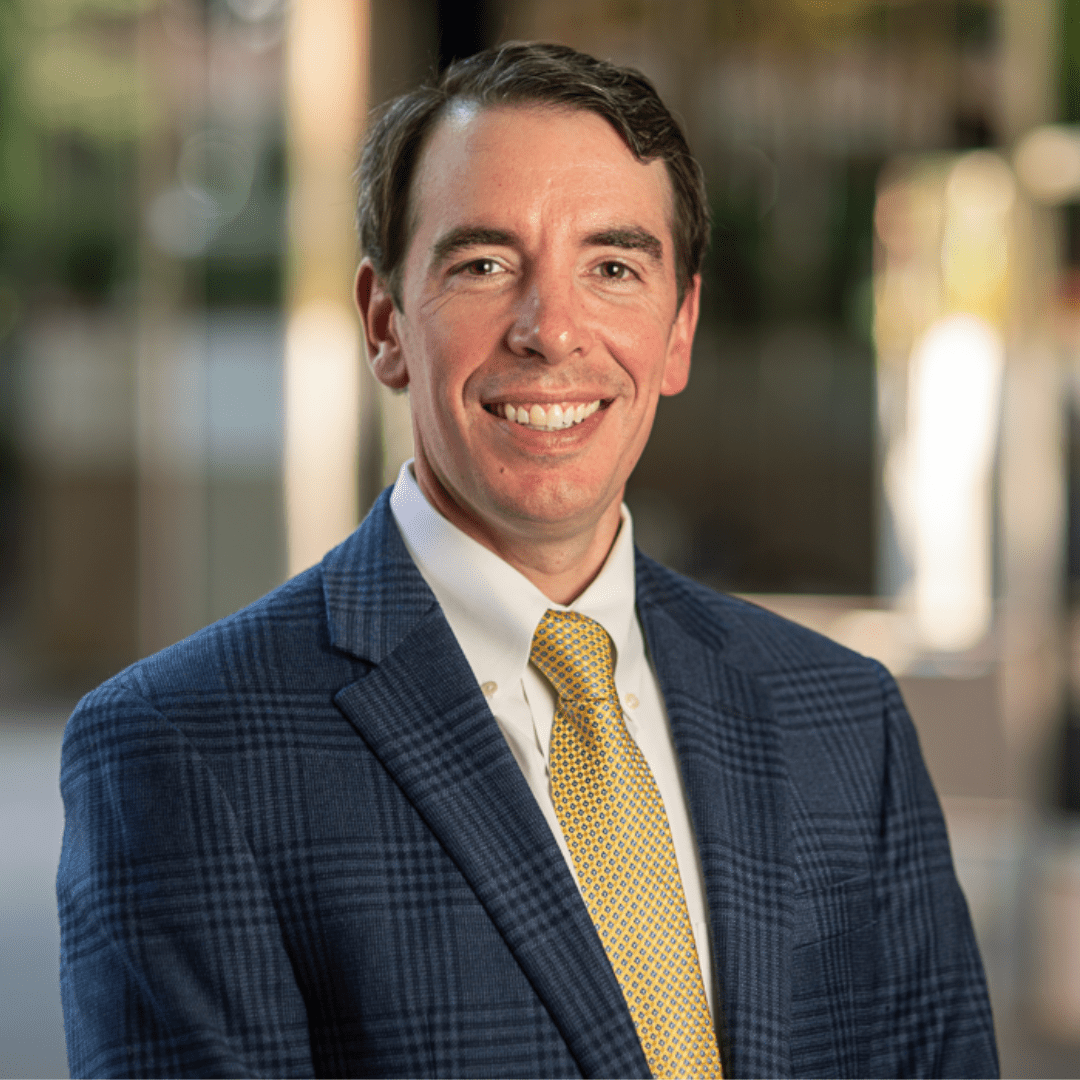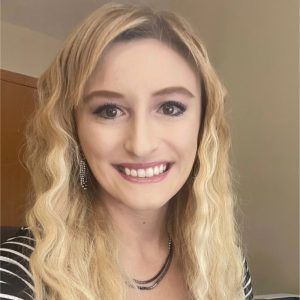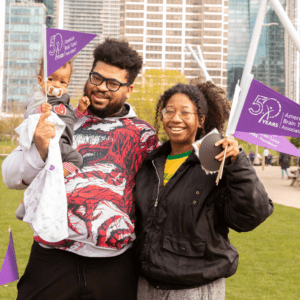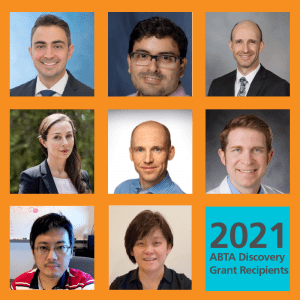
Optimizing what you eat is one way to support yourself or a loved one with a brain tumor. A balanced, nutritious diet can improve overall health and wellbeing during treatment and recovery.
On the frontline of these conversations are neuro-oncologists like Dr. Roy Strowd, MD, MEd, MS, an Associate Professor of Neuro-Oncology and Vice Dean at the Wake Forest University School of Medicine.
In this Q&A, Dr. Strowd shares tips for approaching diet and nutrition after a brain tumor diagnosis, and his hopes for future research surrounding dietary therapy and brain tumor management.
As a neuro-oncologist, what role do you play in educating patients and loved ones about topics like diet and lifestyle?
That’s a great question. I am not a nutritionist or a dietician, nor am I an integrative medicine physician. I work with those experts a lot! But as a neuro-oncologist, I see how important nutrition, wellness, and overall health is for my patients.
Unfortunately, there’s not enough data out there on the role of diet and nutrition in cancer care and side effect management. But I frequently review literature on this topic with patients and it is important that data be the driver of decision-making. When I think about diet and lifestyle the first thing I talk about is, “What is our goal? Is the patient looking to modify diet to treat cancer, manage side effects, improve health and recovery, or something else?” Setting and understanding that shared goal with the patient is a really important first step.
The second thing I talk to patients about is how important it is that, when considering a dietary or nutritional modification, this does not interfere with important and effective treatment of the cancer. This is one thing that I find can be overlooked by patients and their loved ones. One example: when I’m reviewing a patient’s supplements, I’m looking for antioxidants. In general, everyone thinks that they’re a good thing, and in many cases, they are marketed to help fix cancer, but they can potentially interfere with effectiveness of radiation therapy—a process that works by creating oxidants.
So, I encourage patients to bring in supplements that they’re taking so we can review these together, discuss whether they could interfere with their treatment, understand what their goal is for the supplement, and address any potential safety concerns based on their individualized treatment plan.
Things that are really important to the patient, where there’s unknown benefit and low risk, those are things that we can start, monitor, and re-evaluate after a month or two. If we’re going to do something, we ought to know whether it’s working. And if we can use data to prove it, great.
All this said, patients who have in-depth questions or want to make substantial changes to their diet should seek counseling from a licensed dietitian
You’ve mentioned the need for more data around diet and nutrition. What have you found in your own research on specialized diets like ketogenic?
For a long time, patients have been out there doing their own diet “studies.” There has been very limited data on what an optimal diet is and how we can incorporate nutritional therapy into brain tumor care. I wanted to find some of these answers.
Back in 2017, when I was at Johns Hopkins University, they had a very robust and successful program using dietary therapy to manage seizures in adult and pediatric epilepsy patients. So, we partnered with them to conduct a study using a modified version of the ketogenic/intermittent fasting diet in glioma patients who had completed chemotherapy. We wanted to see the biological changes and feasibility of incorporating this diet as a long-term maintenance strategy.
Through an MR spectroscopy, a special MRI that looks at metabolites in the brain, we saw significant changes in metabolic activity in study participants that we feel could create an unfavorable environment for the cancer cells, which rely on glucose, or sugar, to divide and grow.
The ketogenic diet is low in sugar, so the body changes what it uses for energy—instead of carbohydrates, it uses what are called “ketones.” Normal brain cells can survive on ketones, but the theory is that cancer cells cannot use ketones for energy. The long-term impact of ketones on tumor cells is not known, but we saw how the diet was doing things in the brain that we believe are valuable.
We also found that the diet was tolerated well with few adverse reactions. We were concerned this diet could possibly make patients sick or impair cognitive functioning and quality of life. But the results showed the opposite. Unlike the tired feelings we all get after a big turkey dinner with gravy and mashed potatoes, our patients reported feeling less sedated and cognitively impaired. These findings were exciting for us and rewarding for the patients we treated.
While we discovered that this dietary therapy can be safe and implemented as maintenance therapy for glioma patients, we do not know whether it can improve survival or create an unhospitable environment for brain cancer recurrence.
The keto diet is also not meant for all patients. It’s important to discuss the risks and benefits with your doctor to determine if it’s right for you.
What are some general nutrition tips you give to brain tumor patients and their families?
It’s not uncommon for newly diagnosed patients to sit down for that first visit with me and ask, “What should I be doing with my diet, changing everything that I do or going to fasting?” A lot of times I’m pushing the brakes and saying, “Nope, do the exact same thing that you’ve been doing, but let’s find a way to add a little bit of color into your diet.” The general benefits of optimizing diet, whether it’s something as extreme as doing the keto diet or just implementing a more colorful palette, can help not just the average person, but also those undergoing treatment or recovering from surgery.
More broadly, eating is a social experience. Anyone who treats or has experienced cancer knows that the more people around you, the more relationships you have, the more plugged in you are, the less lonely you are, the better everything goes. Some data out there suggests that loneliness is associated with increased inflammatory activity within the body, so it makes sense for all of us and certainly for our cancer patients to be highly relational.
I reinforce the topic of eating with patients by bringing up physical activity, something that should go hand-in-hand with nutrition. Research shows that physical health helps brain health across many diseases. It can be as simple as getting up and doing some physical activity, like walking. I tell my patients you can’t go for a walk while you’re at the grocery store or while you’re out shopping. This is walking for the sake of walking and getting your heart rate up. Recent data shows that lifting light weights with high repetition can be beneficial for heart rate and overall health as well.
For patients who face balance problems, water aerobics or the recumbent bike are great ways to move your arms and legs without the risk of falling.
What are your thoughts on the future of dietary therapy becoming part of the stand of care (SOC) for brain tumor patients?
As we’ve seen, the ketogenic diet made a huge difference in pediatric and adult epilepsy patients, which was the backbone for our research. In our study, we saw metabolic changes in the tumor through the MR spectroscopy. But more research needs to be done to address a core question: if we alter the metabolic environment around the tumor, does that really prevent or address tumor growth?
Current research hasn’t provided clear evidence that changing the metabolic profile of the brain through dietary therapy can prevent or reduce tumor growth. That’s the type of data that our field would need to consider incorporating it into standard care.
One of the real challenges is translating findings from the lab to the clinic. Diet-based therapies may make sense theoretically and can be demonstrated to be beneficial pre-clinically, but showing that helps a patient is much more complicated. Diets like modified keto can be difficult for patients to integrate, which in turn creates challenges in studying long-term effects. We need to approach this research rigorously so we can get information on whether to move the concept of dietary therapy forward or not.
What’s promising to know is that there’s still a lot of interest in this research across the country. There have been studies looking at diet in combination with radiation and chemotherapy. Others are studying overall dietary modifications, like shifting what the macronutrients are, and what patients are eating.
The nice thing about research is that we’re all studying this a bit differently and asking these questions differently. That way, we can gain new insights and new information. So, I’m hopeful we’ll continue uncovering answers to some of these important questions.
Resources for you:
To hear more from Dr. Strowd on nutrition and lifestyle tips, watch a recording of his session, “Holistic Care for Brain Tumor Patients,” from the 2023 ABTA National Conference.
You can find more resources about diet and nutrition for brain tumor patients on the ABTA website, including a newly updated flyer “Super Foods for the Brain,” available in English and in Spanish. The ABTA also offers educational brochures, which patients can download or request free hard copies via mail.
The ABTA encourages speaking with your doctor to learn more and consider a personal consultation with a registered dietitian. Contact the Academy of Nutrition and Dietetics for the names of licensed dietitians in your area.

Jessie Schlacks
Jessie is Managing Editor of the bi-monthly e-newsletter MindMatters. Submit story ideas or questions to jschlacks@abta.org.





















